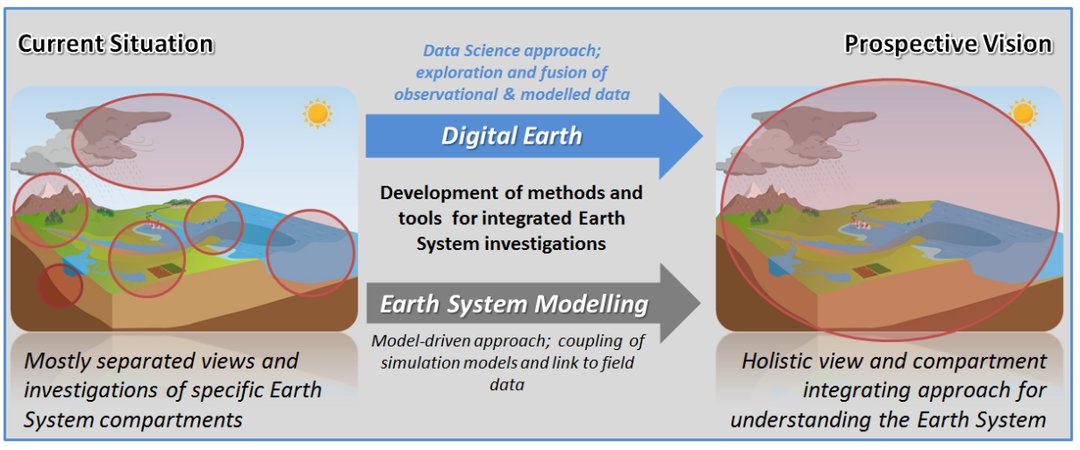Digital Earth
Project start: 01.07.2018
Duration: 3 Jahre
Funding: HGF
Project lead: Harald Kunstmann
Involved scientists: Maximilian Graf (IMK-IFU und Universit?t Augsburg), Gerhard Smiatek (IMK-IFU)
Project partners: AWI, GEOMAR, FZ Jülich, GFZ Potsdam, Helmholtz-Zentrum Geesthacht, Helmholtz-Zentrum München, KIT, UFZ Leipzig
?
Summary
Significant advances in Earth system understanding will only be achieved through better integration of data and knowledge from the different earth science disciplines and earth compartments. Improvement in this field strongly depends on our capabilities of dealing with fast growing multi-parameter data and on our effort employing data science methods, adapting new algorithms and developing digital workflows tailored to specific scientific needs.
Digital Earth has been strategically initiated by all eight centers of the Helmholtz research field Earth and Environment (E&E). Digital Earth is directly linked to two other HGF initiatives MOSES 'Modular Observation Solutions for Earth Systems' and ESM 'Earth System Modelling'.

WP1: SMART Monitoring Designs deals with advancing monitoring strategies by using methodologies of WP2 to e.g. detect observational gaps and refine sensor layouts to allow better and statistically robust extrapolation. Possibilities to include opportunistic sensors, i.e. devices operated for other purposes but providing useful observations will be investigated. WP1 will provide (near-) real-time data that need to be quality control/assured (QC/QA methods from WP2) and processed for e.g. rapid data exploration aiming at event detection through visual and computational methodologies (WP2) for an adaptive monitoring.

We contribute to WP1 with an opportunistic sensing system using a commercial microwave link network to derive precipitation estimates for one of the two show cases. This show case deals with Trans-compartment transport of energy and matter during precipitation and flood extremes.
?
Additional informationen:

